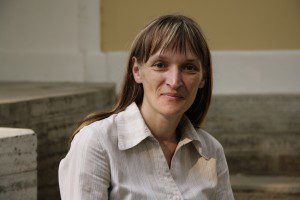Russia: Journalists swept up in crackdown on anti-corruption protesters
[vc_row][vc_column][vc_single_image image=”91601″ img_size=”full” add_caption=”yes”][vc_column_text]
As thousands of people took to the streets across Russia on 12 June 2017 to protest corruption, journalists were among those detained by police, according to verified incidents reported to Mapping Media Freedom.
The Russia Day demonstrations followed calls from the Foundation Against Corruption, an NGO headed by political opposition leader Aleksei Navalny. Rallies took place across the country, with the largest gatherings taking place in Moscow and St Petersburg.
According to OVD-INFO, an independent police monitoring website, at least 1,769 people were detained in 31 cities throughout the day. Rights groups also registered serious human rights violations. The largest number of arrests took place in St Petersburg where roughly 700 people were detained. Around 200 of the detainees were minors who were released after their parents intervened. Russian authorities can hold individuals for 48 hours before they are arrested.
Another 150 demonstrators were sentenced to administrative arrest of up to 15 days in detention, and yet others received fines of between 10,500 and 15,000 rubles (€150 to €250).
Journalists were threatened and detained throughout the country.
[/vc_column_text][/vc_column][/vc_row][vc_row][vc_column][vc_separator][vc_row_inner][vc_column_inner width=”1/2″][vc_column_text]
Russia
Index on Censorship monitors press freedom in Russia and 41 other European area nations.
As of 31/07/2017, there were 361 verified reports of media freedom violations associated with Russia in the Mapping Media Freedom database.[/vc_column_text][/vc_column_inner][vc_column_inner width=”1/2″][vc_column_text]
My 30 hours in detention
As an independent journalist, I was one of the media professionals detained by police at the St Petersburg rally. I was taken to a police station and held with 40 other people for 30 hours before being fined 10,500 rubles (€150) for participating in an illegal demonstration. I am appealing the court’s decision.
— Andrey Kalikh, Mapping Media Freedom
[/vc_column_text][/vc_column_inner][/vc_row_inner][vc_separator][/vc_column][/vc_row][vc_row][vc_column][vc_column_text]
In Moscow, Andrey Poznaykov, a reporter for the Echo of Moscow radio station covering the demonstrations, was detained while he was taking a break on a cafe’s terrace. Though he showed officers his press card, he was taken to a police van and released soon after.
Other detainees in Moscow include: Novaya Gazeta photographer Evgeni Feldman, a correspondent for Open Russia Nikita Safronov, independent photographer Georgi Malets and independent journalist Denis Styazhkin. Aleksei Abanin, a photographer for the RTVi, wrote later that a police officer had threatened “to break my camera and break my face if I continue to photograph.”
Ignacio Ortega, a Moscow-based reporter for Spanish news agency EFE, was also detained while he was reporting from the anti-corruption rally. Officers held Ortega in a van with dozens of other individuals before bringing him and the others to a police station. Ortega was released after he identified himself at the station, EFE reported.
Blogger Yan Katelevski said that he was physically assaulted by police officers while being detained: “They dropped my press card, kicked me and hit me with batons, grabbed me by the throat, and beat me on my head while I was on a police bus”.
In Sochi, Andrey Kiselyov, a correspondent for Radio RFE/RL, was detained and issued him a warning to not commit any further legal violations.
In Makhachkala, Dagestan, Caucasian Knot journalist Patimat Makhmudova said that unknown people had broken her camera during the 12 June protests. Additionally, Bariyat Idrisova and Saida Vagabova, correspondents for the independent Dagestani news website Chernovik were assaulted and prevented from filming at the same anti-corruption rally, Chernovik reported.
In Saratov, an unknown person attempted to prevent filming by correspondents from the Open Channel, a local TV station. The unknown individual approached the TV crew, asked whether everything was OK and then tried to run away with the camera.
Among those who were detained were David Frenkel, a contributing photographer for Kommersant and Mediazona, and Ksenia Morozova, the journalist for local website Sobaka.ru, who were both covering the rally. Both journalists were detained despite showing their press cards.
Frenkel was soon released while Morozova was taken to the police station, where she was kept overnight before facing a trial for “public order disturbance”. After spending 35 hours in the police station, Morozova was brought to the court for trial. She was sentenced to 10 days administrative arrest and a fine of 15,000 rubles (€250). The court argued that Morozova had no “accreditation” to work at the protest.
The Russian Union of Journalists (UJ) released a statement condemning the harsh police actions taken at the anti-corruption rallies across the country. The UJ demanded the release of all detained journalists and sent an appeal to the Chief Police Department of the Ministry of Interior. The head of the journalists’ union Pavel Gusev stated in his interview that the police had disturbed journalists from accomplishing their professional duties.
The St. Petersburg Ombudsman Aleksandr Shyshlov also issued a press release condemning police actions during the rallies where “hundreds of people were detained, among them minors, media representatives, observers and passing civilians who did not commit any unlawful actions”.
[/vc_column_text][/vc_column][/vc_row][vc_row][vc_column][vc_column_text]
Mapping Media Freedom
Click on the bubbles to view reports or double-click to zoom in on specific regions. The full site can be accessed at https://mappingmediafreedom.org/[/vc_column_text][/vc_column][/vc_row]


